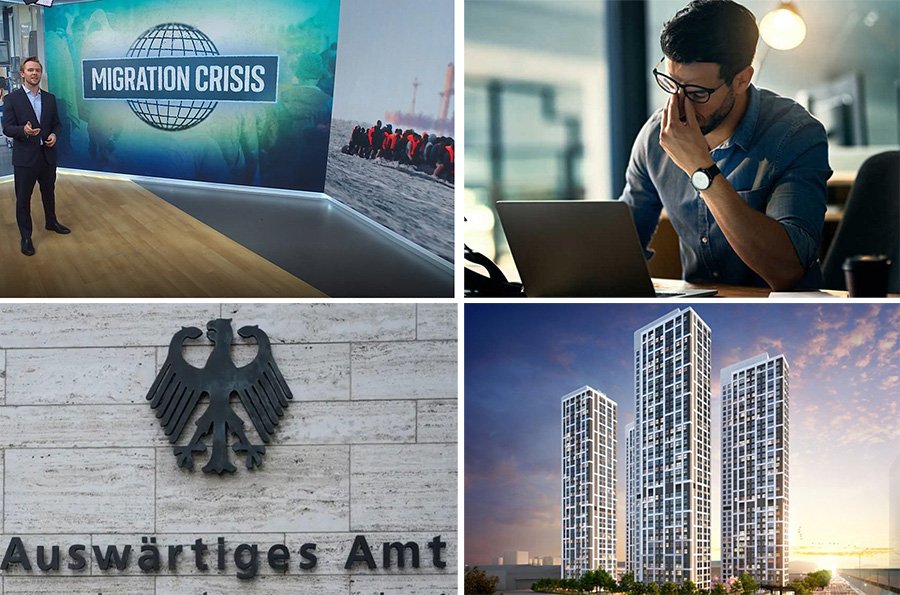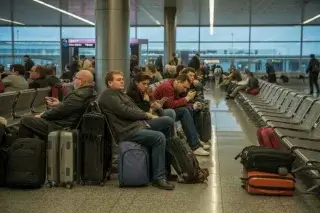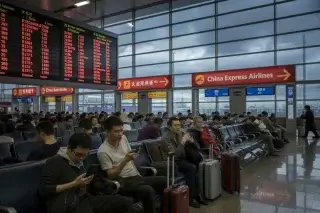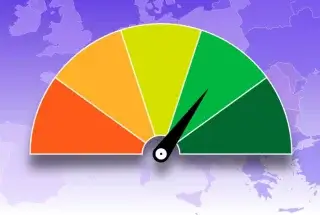Migration News of the Week: From German Visas to Korean Apartments

Migration rules across the world continue to change rapidly. This week brought surprising updates: Germany unexpectedly reopened humanitarian visas, Armenia moves closer to automatic data exchange with Russia, foreigners in the EU show a shift toward part-time work, the UK struggles with asylum seekers in hotels, and South Korea introduces tough restrictions on property purchases by foreigners.
Germany Backtracks: Humanitarian Visas Return
Germany has lifted its moratorium on humanitarian visas for foreigners facing persecution due to human rights or opposition activities. The Foreign and Interior Ministries confirmed that applications can once again be submitted under §22.2 of the Residence Act.
Before the July 2025 pause, such visas were granted to journalists, activists, and public figures under direct threat. Since 2022, 2,500 Russians and over 400 Belarusians received them. In total, about 34,700 people—also including Syrians and Afghans—have entered Germany under humanitarian programs.
The renewed program now applies universally, without nationality-based quotas. Authorities stress, however, that this is about individual cases, not mass amnesty.
Armenia Will Share Data With Russia
Armenian banks and brokers are now collecting tax residency details from Russian clients ahead of automatic financial data exchange with the Russian Federal Tax Service (FTS). Information on 2024 accounts will start being transferred in September 2025.
Clients are being asked to provide addresses, tax IDs, and residency confirmations. Failure to comply may result in fines, account freezes, or even criminal charges.
The changes affect not only individuals but also Russian-owned companies using Armenia’s financial system for international transactions. Many Russians are considered dual residents under both Russian (183+ days rule) and Armenian (6 months or “center of life interests”) tax law, raising the risk of double taxation.
The FTS reported a 30% increase in Russians’ foreign accounts since 2020, and a 72% surge in currency violations in 2024, totaling over 136,000 cases. In 2025, an automated residency status check will be launched using border-crossing and passport data.
Foreigners in Europe Choose Part-Time Work
Foreigners in the EU are increasingly working part-time. In 2024, 22.2% of non-EU migrants and 20.8% of EU movers held part-time jobs, compared with just 16.6% of locals. Among women, the figures are striking: 35.8% of intra-EU migrants and 36.8% of non-EU migrants worked reduced hours, while men’s share was below 12%.
At the same time, overtime work (49+ hours per week) declined across the EU—from 9.8% in 2014 to just 6.6% in 2024. Yet disparities remain: Greece and Cyprus still record high overtime, while Eastern Europe shows almost none.
Average working life in the EU grew to 37.2 years, peaking at 43.8 years in the Netherlands and remaining lowest in Romania, Italy, and Greece (around 33–34 years).
UK Hotels Still House Asylum Seekers
In June 2025, 32,000 asylum seekers lived in UK hotels—8% more than in 2024—despite government promises to phase out the practice. At the same time, pending asylum applications dropped below 100,000 for the first time in four years.
Forced deportations rose by 25% to 9,100 cases, over half involving convicted criminals. Yet, around 65% of small-boat arrivals still receive asylum, fueling political debate.
While the government claims an 11% cut in asylum costs, the hotel problem remains unresolved, undermining credibility on migration promises.
South Korea Blocks Speculative Foreign Property Deals
Starting August 26, foreigners can only buy property in Seoul and surrounding areas with official permission. New rules require buyers to move in within four months and live there for at least two years, or risk fines of up to 10% of property value and annulment of the deal.
The restrictions target speculative schemes: foreign buyers bypassed mortgage caps (600M KRW) by financing from abroad and using local managers to hold property. Nearly 500 homes were bought this way in a year, mostly by Americans and Chinese.
In 2025 alone, foreigners closed 4,431 property deals in the capital region; the year-end total could reach 7,600. Luxury purchases in Gangnam and Yongsan hit record highs, including a $8.7M apartment bought by a U.S. citizen. Overall, Chinese citizens own 56,000 properties in Korea, and Americans 22,000.








